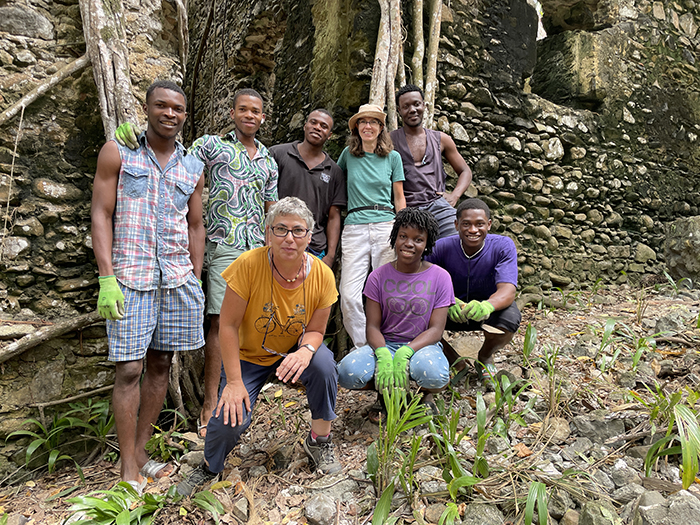Alumni spotlight: M. Dores Cruz
Binghamton experience inspires archaeological research in São Tomé and Príncipe

With slightly more than 200,000 people and covering less than 400 square miles, São Tomé and Príncipe is among the smallest — and least known — African nations. The archipelago’s historical impact is larger. M. Dores Cruz, PhD ’03, is unearthing stories of the main island of São Tomé.
Uninhabited until the late 15th century, São Tomé and Príncipe shaped the global economy for centuries. The island of São Tomé had a major role in the development of the slave plantation model based on sugar production and was an outpost of the slave trade under Portuguese rule.
Archaeological study started in 2020 and for the past three years, Cruz — a researcher at the University of Cologne — has led a team investigating Praia Melão, the island’s largest sugar mill and estate, active from the 16th to 19th centuries. This was the first archaeological investigation on the island. Last summer, the team carried out the first excavation in São Tomé.
“A difficulty we faced was that there was no previous archaeological research to draw from and official institutions have no experience with the discipline,” Cruz says. “Another obstacle is the extremely tropical environment — the vegetation is so dense that it’s difficult to see the ground.”
Work in 2022 focused on the survey of the building, highlighting its characteristics and identifying industrial ceramics, particularly molds used to dry sugar. The 2023 excavation yielded clay roof tiles reflecting common architectural styles in colonial Portuguese buildings and African-style ceramics. This was notable because there is no record of ceramics made in São Tomé and such artifacts show the perseverance of cultural traditions among enslaved populations.
“We don’t know anything about the daily lives of those who produced sugar,” Cruz says. “We’re hoping with this long-term project to go beyond the visible building and bring to light the undocumented history of daily life of its enslaved communities.”
